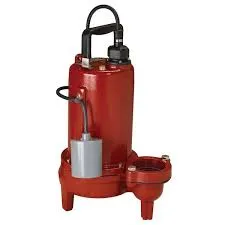English
- Afrikaans
- Albanian
- Amharic
- Arabic
- Armenian
- Azerbaijani
- Basque
- Belarusian
- Bengali
- Bosnian
- Bulgarian
- Catalan
- Cebuano
- Corsican
- Croatian
- Czech
- Danish
- Dutch
- English
- Esperanto
- Estonian
- Finnish
- French
- Frisian
- Galician
- Georgian
- German
- Greek
- Gujarati
- Haitian Creole
- hausa
- hawaiian
- Hebrew
- Hindi
- Miao
- Hungarian
- Icelandic
- igbo
- Indonesian
- irish
- Italian
- Japanese
- Javanese
- Kannada
- kazakh
- Khmer
- Rwandese
- Korean
- Kurdish
- Kyrgyz
- Lao
- Latin
- Latvian
- Lithuanian
- Luxembourgish
- Macedonian
- Malgashi
- Malay
- Malayalam
- Maltese
- Maori
- Marathi
- Mongolian
- Myanmar
- Nepali
- Norwegian
- Norwegian
- Occitan
- Pashto
- Persian
- Polish
- Portuguese
- Punjabi
- Romanian
- Russian
- Samoan
- Scottish Gaelic
- Serbian
- Sesotho
- Shona
- Sindhi
- Sinhala
- Slovak
- Slovenian
- Somali
- Spanish
- Sundanese
- Swahili
- Swedish
- Tagalog
- Tajik
- Tamil
- Tatar
- Telugu
- Thai
- Turkish
- Turkmen
- Ukrainian
- Urdu
- Uighur
- Uzbek
- Vietnamese
- Welsh
- Bantu
- Yiddish
- Yoruba
- Zulu
Telephone: +86 13120555503
Email: frank@cypump.com
Nov . 18, 2024 07:35 Back to list
Efficient Solutions for Handling Slurry with Tractor-Driven Pumps in Agriculture
The Importance of Tractor Slurry Pumps in Modern Agriculture
In modern agriculture, efficient management of waste and nutrients is crucial for both the environment and farm productivity. One essential tool that has emerged to address these needs is the tractor slurry pump. Designed to handle slurry—a mixture of liquid waste, such as manure, with water—these pumps play a significant role in nutrient management and soil health on farms.
Farmers face the challenge of effectively transporting and applying slurry across their fields. Traditional methods can be labor-intensive and inefficient, often leading to nutrient loss or environmental contamination. This is where tractor slurry pumps come into play. These pumps are typically mounted on tractors and are specifically engineered to move thick, viscous materials with ease. Their robust design allows them to handle high solid content without clogging, making them ideal for slurry management.
The primary advantage of using a tractor slurry pump is the enhanced ability to distribute nutrients evenly across farmland
. Farmers can quickly adjust the flow rate and pressure of the slurry, ensuring that the right amount of nutrients is applied to specific areas. This precision reduces waste and maximizes the benefits of animal byproducts, which are rich in essential nutrients like nitrogen, phosphorus, and potassium. When applied correctly, these nutrients can significantly improve soil fertility, leading to better crop yields and reduced dependence on synthetic fertilizers.tractor slurry pump

Moreover, tractor slurry pumps contribute to environmental sustainability. By recycling organic waste, farmers reduce their overall waste footprint while enriching their soils. Proper slurry management minimizes the risk of runoff and groundwater contamination, which is a critical concern in agricultural practices. With stringent regulations on waste disposal and nutrient management in many regions, employing a tractor slurry pump can help farmers comply with environmental standards, safeguarding both their land and the surrounding ecosystem.
Additionally, the use of slurry pumps can improve the efficiency of farm operations. Equipped with modern technology, many pumps now offer features such as real-time monitoring and automated controls, allowing farmers to optimize their slurry application based on weather conditions and crop needs. This tech-driven approach not only saves time but also ensures that slurry is applied at the most effective times, further enhancing crop performance.
The transition to using tractor slurry pumps is increasingly being recognized as a best practice in sustainable agriculture. As farmers seek to adopt more environmentally friendly practices, the demand for reliable slurry management solutions will continue to grow. Investments in high-quality equipment can lead to long-term benefits, not only in terms of soil health but also in reduced operational costs and improved productivity.
In conclusion, tractor slurry pumps are vital tools in modern agricultural practices. They facilitate efficient nutrient management, promote sustainability, and enhance farm productivity. As agriculture continues to evolve with a focus on environmental stewardship, the role of these pumps will only become more significant, paving the way for more responsible agricultural practices that harmonize productivity with ecological balance.
-
Heavy-Duty Mining Sludge Pumps - Wear-Resistant Slurry Handling
NewsAug.02,2025
-
Horizontal Split Case Pump with GPT-4 Turbo | High Efficiency
NewsAug.01,2025
-
ISG Series Pipeline Pump - Chi Yuan Pumps | High Efficiency, Durable Design
NewsAug.01,2025
-
Advanced Flue Gas Desulfurization Pump with GPT-4 Turbo | Durable & Efficient
NewsJul.31,2025
-
ISG Series Vertical Pipeline Pump - Chi Yuan Pumps | Advanced Hydraulic Design&Durable Construction
NewsJul.31,2025
-
ISG Series Vertical Pipeline Pump - Chi Yuan Pumps | Energy Efficient & Low Noise
NewsJul.31,2025










